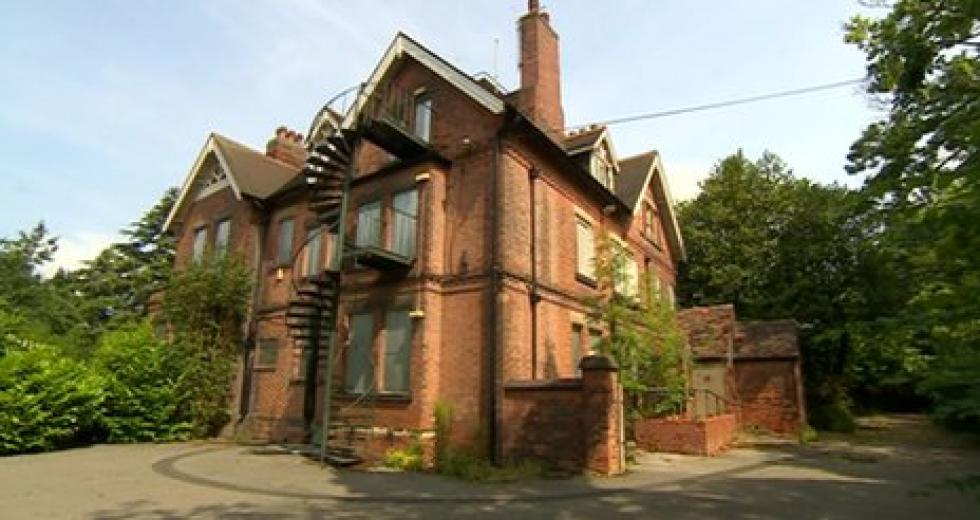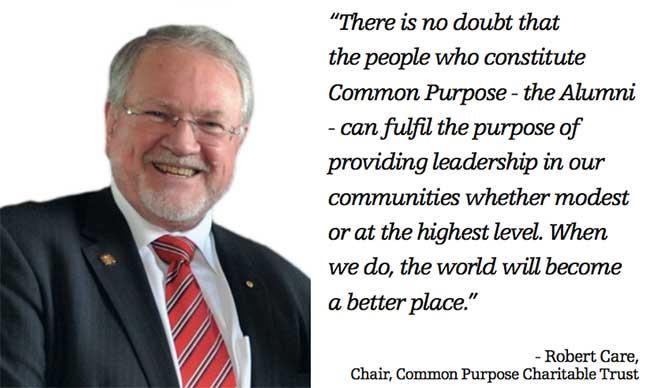
Less than two months following publication of the Jay report into Child Sexual Exploitation in Rotherham we learned that Nottinghamshire County Council and Nottingham City Council have both ordered an urgent investigation into historical allegations of child abuse in care homes across the area.
If we travel back in time to 1992 we discover that the Dawson Report revealed that “something is badly wrong with Nottinghamshire’s social services ... in the past 18 months in Nottinghamshire 18 children have died at the hands of those with a duty to care for them.”
Then in 1993 during the trial of Colin Leat, who was convicted of murdering his three-year-old stepdaughter Leanne White, the trial judge criticised the County’s Social Services for having failed to protect Leanne, despite repeated calls from relatives and neighbours.
Ten years later, Christopher Atkins, 31, of Cotgrave, was jailed for a horrific sex attack on a girl, which left her with life-threatening injuries. The girl, under five years of age “had been in Nottinghamshire for nine weeks and was already subject to a protection plan because of neglect.” Nottinghamshire Safeguarding Children Board carried out a serious case review. This review criticised certain aspects of practice which included “a lack of robustness in assessing the child’s circumstances following the move to Nottinghamshire, in leadership of the child protection plan and in the responses to injuries sustained by the child.”
When announcing the new investigation, Nottinghamshire County Council Leader Alan Rhodes said, “It is also important to say that children’s social care services are unrecognisable today compared with even 20 years ago. Councils now operate differently and under much tighter controls and are monitored by Ofsted and independent Safeguarding Children Boards.”
These and other cases beg the question why is Nottinghamshire suddenly interested now, when there has been a recognised history of failure in this area? Just how independent are the public bodies which have a statutory duty to protect our vulnerable children, and are they fit for purpose?
Even before the County and City Council investigations, Nottinghamshire Police had already set up Operation Daybreak to look into the matter. 80 complainants who attended five homes, including Beechwood, in Mapperley, have come forward.
One of those, Melanie Shaw, found herself on remand in Sodexo high security prison Peterborough between 25 July and 17th October 2014 on charges of “Arson Reckless and Criminal Damage”. At her trial she was found guilty and was sentenced to two years probation. Members of the public who were present at her trial reported that among other irregularities, the trial judge had expressed the view that Operation Daybreak was “conspiracy theory”. Yet in December 2013 the Nottingham Post published an article revealing that “Operation Daybreak covers alleged abuse by staff at Beechwood Community House, Mapperley, Bracken House, which was in Thames Street, Bulwell, Ranskill Gardens, Bestwood, Wood Nook, in Beechdale Road, Beechdale, and Risley Hall, Derbyshire from the late 1960s until 2000.”
Now that we have set the scene, let’s commence our investigative journey by returning to 1992 and reminding ourselves of the changes to our system of governance as a result of the United Nations Agenda 21 Treaty.
Public Private Partnerships and Agenda 21
The United Nation Agenda 21 programme describes itself as “a comprehensive plan of action to be taken globally, nationally and locally by organizations of the United Nations System, Governments, and Major Groups in every area in which humanity impacts on the environment.”
The United Nations has this to say about re-modelling our system of Governance in Section III, Chapter 27 of Agenda 21:
With a view to strengthening the role of non-governmental organisations as social partners, the United Nations system and Governments should initiate a process, in consultation with non-governmental organisations, to review formal procedures and mechanisms for the involvement of these organisations at all levels from policy-making and decision-making to implementation.
In other words, in all aspects of our lives, decisions are now being made and implemented by governance structures that include Public Authorities, but also include so called Third-Sector Charities. One of those Third-Sector Charities is Common Purpose.
Definition of the Common Purpose Effect
We have long stated that by blurring the boundaries between people, professions, public and private sectors, responsibility and accountability, Common Purpose encourages graduates to believe that as new selected leaders, they can work together, outside of the established political and social structures, to achieve a paradigm shift or CHANGE. They call this doctrine “Leading Beyond Authority”. In doing so, the allegiance of the individual becomes ‘re-framed’ on Common Purpose colleagues and their NETWORK”.

Nottingham City Council
We have uncovered evidence that Nottingham City Council re-shuffled its senior management pack as recently as 2011. Of the six strong Chief Executives group four are Common Purpose Graduates. These are:
- Ian Curryer, Chief Executive, who was formerly Corporate Director of Children & Families (Nottingham Matrix 1996)
- Ruby Bhattal, Head of Corporate Marketing & Communications (‘owner’ of the LinkedIn Nottingham Meridian Cohort 2010);
- Dr Chris Kenny, Director Public Health (Sheffield Matrix 2002)
- Nigel Cooke, of One Nottingham who was previously working at the Government Office for the East Midlands (Derby Profile 2005).
“Matrix”, “Meridian” and “Profile” are all Common Purpose courses.
Alison Michalska
Also of note is Alison Michalska, Nottingham City Council’s Corporate Director of Children & Families, was previously the Director of Children Family and Adult Services at East Riding of Yorkshire Council.
In 2008, a report by the East Riding Safeguarding Children Board disclosed that up to 14 members of staff, at Headlands School and Community Science College, in Bridlington, East Yorkshire, had inappropriate relationships with pupils aged 11 to 18. The report highlighted persistent failures to protect pupils at Headlands over 13 years to 2004 and criticised management standards during that time.
At the time of the report Alison Waller, the director of children, family and adult services at East Riding of Yorkshire Council, said: “Any lessons learnt by the inquiry will be fully acted upon.”
Research has uncovered that Alison Waller and Alison Michalska are the same individual. Perhaps more relevant is the fact that, whilst Area Director, Social Care & Health with Birmingham City Council in 2001, Alison Michalska became a Common Purpose Matrix Graduate under her previous incarnation as Alison Waller.
One Nottingham
According to their website “One Nottingham is the Strategic Partnership for the City, bringing together public, private, voluntary and community sector organisations to champion our long term vision for Nottingham and tackle disadvantage.”
One Nottingham is a family of partnerships at the centre of which is the One Nottingham Board. The fourteen strong board includes:
- Councillor David Mellen, Nottingham City Council (Chair), who in the minutes of Board Meeting 23 November 2012 is recorded as stating that the “Autumn forum played an important part of the ON role in bringing agencies together with a common purpose”
- Ian Curryer, Chief Executive, Nottingham City Council (Common Purpose)
- Nigel Cooke, Director One Nottingham, Member Nottingham City Council Chief Executive’s Group (Common Purpose)
- Cecile Wright, Trustee of National Children’s Bureau, Nottingham Equal (Common Purpose)
- Mike Khouri-Bent, Corporate Director for Care Standards, Pathway Care Solutions Business Representative, Board Member of Nottingham City Homes (Common Purpose).
In 2011 a report pointed out that “widespread abuse of Nottingham’s council housing system was said to be one of the biggest scandals in the history of the city council”. The housing service was revealed to have wrongly given homes to some employees, their relatives, partners and friends in an Audit Commission investigation in 2009. In April 2005 the management of Nottingham City Council’s housing stock had been transferred to Nottingham City Homes (NCH), a newly formed arm’s length management organisation (ALMO). Nottingham City Council abandoned its investigation into the allocation of council houses. The police did not carry out any criminal investigation and didn’t pursue any cases.
One Nottingham works with a range of partners across the City of Nottingham, including the Theme Partnerships, Area Committees and Area Partnerships as well as Nottingham Community and Voluntary Service, Nottingham Equal, Nottingham City Council and many other public and private sector organisations. The Theme Partnerships are leading on achieving the outcomes in The Nottingham Plan to 2020.
Current theme partnerships are: Nottingham Children’s Partnership (including the Priority Families Programme), Health and Wellbeing Board, Crime & Drugs Partnership, Housing Partnership for Nottingham, Working Nottingham and Green Nottingham.
The Nottingham Plan to 2020 sets the overall strategic direction and long term vision for the economic, social and environmental well-being of the City of Nottingham.
It is this Plan which links to the United Nations Agenda 21 programme.
On page 54 of The Nottingham Plan 2020 it states:
we will embed the common assessment framework and related practices to ensure a more integrated approach across all public services to keeping children safe
Nottingham Children’s Partnership
The Nottingham Children’s Partnership is one of the One Nottingham Theme Partnerships.
The Nottingham City Children & Young People’s Plan 2010-2014 (CYPP), sets out the priorities to be addressed by the Children’s Partnership Board, as agreed by the City Council and its partners.
All partners are accountable for the delivery of a wide range of services to children and young people in Nottingham City. Some of these can be delivered better where we work together. The Children’s Partnership Board is the vehicle for that joint working.
The Nottingham City Children’s Partnership Board (Acting as the Children’s Trust) Constitution and Governance Arrangements outlines the composition of the Children’s Partnership Board. It includes representatives from the following organisations:
- Nottingham City Council
- NHS Clinical Commissioning Group
- NHS Nottingham University Children’s Hospital.
- Nottingham Governors’ Association
- Nottinghamshire Police
- Nottingham City Safeguarding Children’s Board
- Nottinghamshire Probation Service
- Young People’s Learning Agency
- Futures for Nottingham and Nottinghamshire
- Job Centre Plus
- Nottingham City Schools (including academies, nursery, primary, secondary and special school representation)
- Further Education Sector
- Voluntary Sector
Included amongst this board we discovered:
- Ian Curryer, Chief Executive, Nottingham City Council (Common Purpose)
- Alison Michalska, Corporate Director of Children & Families, Nottingham City Council (Common Purpose)
- Helen Kearsley-Cree, Chief Executive, Nottingham Council for Voluntary Services (Common Purpose Focus 2005)
Who regulates Nottingham Children’s Partnership?
The Partnership is governed by Nottingham Children’s Partnership Board, which is accountable to One Nottingham. One Nottingham is the strategic partnership for the whole of Nottingham and is accountable to the Government for the delivery of key targets for the City.
Not only are some members of the Children’s Partnership board also sitting on the One Nottingham Board but Common Purpose graduates are present in both. One surely has to question if this is a healthy arrangement. One of the functions of the Children’s Partnership is to ‘Oversee the Early Intervention Programme and approve any progress reports for submission to the One Nottingham Board’.
Nottingham County Council
Mick Burrows was appointed to the post of Chief Executive of Nottinghamshire County Council in April 2008. Mick spent 22 years working in the Civil Service before joining the County Council in 1995 as a project manager in adult learning. He later became a strategy manager in the regeneration service and was subsequently appointed as Assistant Director of the Culture and Community Department in 1999. He became a Common Purpose Matrix Graduate in 1992.
Jayne Francis-Ward is the Corporate Director, Policy, Planning and Corporate Services. She leads the County Council’s Transformation Programme and has held a number of roles at the Council, including the position of Assistant Chief Executive, and was appointed to her current post in March 2012. Francis-Ward became a Common Purpose Matrix Graduate in 1993.
Jas Hundel, Director of Property, Transport and Environment is a Common Purpose Matrix 2000 Graduate.
Nottinghamshire County Council Child Safeguarding Board
Local Safeguarding Children Boards (LSCB) were established by the Children Act 2004. The Nottinghamshire Safeguarding Children Board (NSCB) covers Nottinghamshire County - excluding the City of Nottingham.
The Board is the key statutory mechanism for agreeing how relevant organisations co-operate to safeguard and promote the welfare of children and ensure the effectiveness of what they do. The work of the NSCB fits within the wider context of the Children and Young People’s Strategic Plan and the Board is responsible for protecting the most vulnerable children and young people, which is a priority set out in the plan. The NSCB works with partners which include Children’s social care, Children’s Trust, Police, Multi-Agency Public Protection Arrangements (MAPPA), Education, Voluntary sector organisations and Faith organisations and the Child Exploitation and Online Protection Centre (CEOP).
Nottinghamshire Police & Common Purpose
In January 2010 an expert team of Her Majesty’s Inspectorate of Constabulary spent two weeks at Nottinghamshire Police in an attempt to work out how to improve performance. The team included:
- Keith Bristow, Chief Constable of Warwickshire (Common Purpose)
- Mike Craik, Chief Constable of Northumbria (Common Purpose)
- Ann Barnes, chairman of Kent Police Authority
- Paul Coen, interim Chief Executive of British Transport Police Authority
- Tony Wilkinson, former Chairman of Wilkinsons Limited.
The team was coordinated by Adam Pemberton, deputy director of a “capability review team” at the Cabinet Office.
It’s worth highlighting the fact that the Child Exploitation and Online Protection Centre (CEOP), which partners with Nottingham Safeguarding Childrens Board, was taken into the newly-created National Crime Agency (NCA) in 2013. Keith Bristow is the 1st Director-General of the National Crime Agency and took up his office in October 2013.
In February 2012 ‘Nottinghamshire’s Chief Constable Julia Hodson agreed a compensation settlement after being sued by her former deputy. Mr Howard Roberts was claiming victimisation after exposing wrongdoing by the Chief Constable, under whistleblowing laws. The allegations against Ms Hodson were not made public because the case was settled and will not be heard in court’. Hodgson retired as Chief Constable in August the same year.
We can also reveal that a number of Senior Officers in other Police Forces are also under investigation.
For example, in September 2014, we learned that the IPC is investigating the Chief Constable of Wiltshire Police, Patrick Geenty, an inspector and a detective constable from the force in relation to the way they dealt with complaints lodged in 2008 and 2009. Those complaints had been about the way the force handled allegations of sexual abuse. Chief Constable Patrick Geenty is a Common Purpose Matrix Graduate.
In July this year it was revealed that ‘UK chief constable, Nick Gargan, is under criminal investigation for allegedly breaking data protection legislation to access personal information of younger females whom he’s accused of inappropriately propositioning. Following an investigation by UK police watchdog, the Independent Police Complaints Commission (IPCC), Gargan has been suspended and is the subject of criminal investigation’. Chief Constable Nick Gargan was a speaker at a Common Purpose Event held at Avon and Somerset Police Headquarters.
Following the Jay report into the sexual exploitation of young children in Rotherham the IPCC have written to the Chief Constable to advise him of the IPCC’s expectation that any evidence of failures or misconduct by South Yorkshire Police officers should be referred to them. In the ‘Rotherham Common Purpose effect’ published in our previous edition we revealed that David Crompton, Chief Constable of South Yorkshire Police is also a Common Purpose Matrix Graduate as was his immediate predecessor Bob Dyson.
Nottinghamshire Police & Crime Commissioner
Paddy Tipping was formerly MP for Sherwood who, in 2009, became the 46th MP to step down over the investigation into Parliamentary Expenses. Following the scandal, 112 sitting MPs said they would not be seeking re-election. Before entering Parliament Paddy worked as a social worker (1972 – 1979). From 1979 to 1983 he was Project Leader for the Church of England Children’s Society. Paddy was then a Councillor for Nottinghamshire County Council and Director of Nottinghamshire Co-operative Development Agency and he was also involved with the Nottingham Development Enterprise.
Chris Cutland (Deputy Police & Crime Comissioner) previously worked for Nottingham City Council - helping to develop area based community safety working groups which monitored the work of the local police beats and community protection officers. She also has experience of working with locally elected members and stakeholders to identify key issues and how to resolve these. She is a Common Purpose Matrix Graduate 2001.
Conclusion
There can be no doubt that the austerity programme introduced by the Coalition Government in 2010 has been a key driver of the accelerating transformation of our public services. This has resulted in the introduction of Local Thematic Partnership Boards which include unelected representatives drawn from the Charity Sector. It is no coincidence that these new governance structures match those outlined in Chapter 27 of the United Nations Agenda 21 programme.
Evidence also reveals that these model governance arrangements, where many key positions are held by Common Purpose Graduates, are being replicated all over the Country. This demonstrates ‘beyond reasonable doubt’ that a key function of Common Purpose Graduates is to covertly promote the UNs Agenda 21 programme.
A fatal flaw in these new governance arrangements was succinctly described by Professor Jay in her report ‘Independent Enquiry into Child Sexual Exploitation in Rotherham’. She wrote, “An issue or responsibility that belongs to everybody effectively belongs to nobody, and in the case of sexual exploitation of children in Rotherham, accountability was key.”
How many more such scandals will be witnessed if the Common Purpose Effect remains unrecognised, unchallenged and unchecked?

